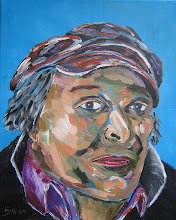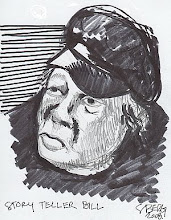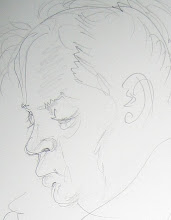HERE IS THE BACKSTORY TO THE SONG
With pen and paper in hand, Kris, anguished and tormented, head down and teary eyed, entered the tavern and sat down in a dark remote corner and ordered a double. He needed something to relieve his pain.
Hours earlier, a sympathetic and kindly Salvation Army Officer who was hoping to negotiate the beginning of a reconciliation had driven him up to the house of his long estranged wife.
Obviously, Kris had confided his pain to the Officer.
The uniformed Officer approached the door of the house while Kris waited hopefully in the car for a face-to-face meeting with his wife whom he had not seen for many years.
His wife angrily rejected any thought of reconciliation. And who could blame her?
By 20, she had mothered three of Kris’s four children. Despite this, Kris spent most of his wages virtually every night having a good time in the pub and coming home most evenings only after last call. Once home, usually in a drunken state, if indeed he did come home at all, he would beat his wife, often for rejecting his advances.
She was the classic abused wife and her beatings would earn Kris jail time these days. Unfortunately, spousal abuse was not treated seriously in those days of sexual inequality. Then, man ruled the roost as king of his castle.
Until recent times, divorce was uncommon and difficult. The only ground for divorce was infidelity, and embarrassment at that becoming public in the Victorian 40’s and 50’s deterred divorce for many on those grounds. The other ground for a legal end to a marriage was the death of a spouse. In the absence of evidence of death, this ruling was made following seven years of separation during which time the spouse could not be located. But Kris kept surfacing just before the seven years, each time denying his wife’s freedom.
After the birth of her fourth child at 24, Kris’s wife escaped the abuse by running away with her newborn son to work somewhere...anywhere, as a domestic. Painfully, she had to leave her other three children who came under the care of the Children’s Aid.
All this gnawed at Kris’s tormented mind as he cleared his tears and started to write.
“Dear Rose....”
Kris was spent and broken and words didn’t come easily. He found it difficult to express his remorse for the hell he’d brought his family.
“I think of you constantly,” he wrote. “I’ve brought only pain to you and our children. I regret this with all my heart. But yesterday is left and gone. It can’t be changed. But, I promise, I won’t let the devil take any tomorrows if we can share some time together. It’s so sad to be alone," he added in self pity.
Thinking of his shameful past was painful. He put his pen and paper aside and bowed his head to hide the tears again welling in his eyes. Kris’ emotions overcame him making it impossible to continue.
Shortly, a stranger, a busty scantily dressed woman with her hair tied up with a bright red ribbon approached his table.
“You’re all alone,” she said. “You look like you need some company.”
“Sure, sit down. Let me get you a drink,” Kris replied.
They drank until the place closed and then left arm in arm...together.
WRITER'S NOTE---This story is mostly factual with Kris portraying the character of my father and his estrangled wife my mother. It is doubtful though that my father ever displayed any of Kris' remorse or tears until his end as a broken, lonely, and forgotten soul.












